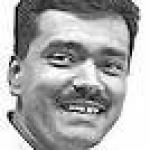India’s Informal Workers and Social Protection

Since the 1980s, the world’s governments have decreased state welfare rhetoric and policy, and the proportion of unprotected “informal” workers has expanded. The result has been an increase in the proportion of the world’s workers who do not receive secure wages or social benefits from employers or the state. India is no exception to these global trends; according to the Government of India’s 2005 Sample Survey on Employment and Unemployment (NSS) 93 percent of India’s total labor force, and 82 percent of its non-agricultural labor force is informally employed.










